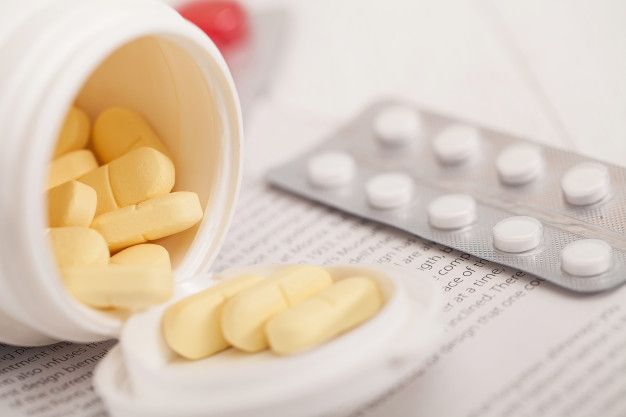
Facts: Will Build Back Better Legislation Lower Prescription Drug Prices?
The Build Back Better Act, or H.R. 5376, responds to the COVID-19 pandemic by strengthening the economy and bringing financial relief to Americans. Proponents argue that the bill brings about milestone changes to various social, health, and economic programs. In particular, specific provisions of the bill attempt to reign in prescription drug prices in two ways: allowing Medicare to negotiate drug prices and placing caps on drug price increases.
What is the Build Back Better Plan?
With President Biden’s support, the House of Representatives adopted the Build Back Better Act (BBB) on November 19, 2021. BBB proposes $1.7 trillion of extensive reforms that address revenue, climate change, social services, infrastructure, and healthcare. Based on projections from the Congressional Budget Office (CBO), three of the provisions would increase the number of health-insured people in the U.S. by 3.4 million. The bill also includes measures that enable Medicare to negotiate the prices of expensive drugs, and it promises to lower the cost of many prescription medications.
Price Negotiation through Medicare
Currently, Federal law prohibits the government from negotiating drug prices or capping Medicare price increases. The lack of such regulations allows drug companies to set their rates based on market demand.
To address high drug prices, sections of H.R. 5376 would permit the U.S. Secretary of Health and Human Services to negotiate with pharma companies the costs of prescription medications covered under Medicare Parts B and D. No more than 10 drugs would be eligible for negotiation. In 2026 and 2027, eligibility would increase to 15 and 20 drugs, respectively. These medications would be under brand names and have no competitors. This provision also puts the lid on out-of-pocket costs at $2,000 annually.
Also, certain insulin products would receive a price cap of $35 for people enrolled in private insurance and Medicare. This stipulation would protect patients with diabetes from paying high out-of-pocket costs for life-saving insulin.
Companies not selling these specified drugs at their negotiated prices would face penalties. Also, pharmaceutical companies that do not participate in the price negotiations with the federal government would have to pay an excise tax.
Price Increase Limits on Prescription Drugs
Another critical component of H.R. 5376 that addresses drug costs places limits on price increases. Prices for most pharmaceutical medications have risen faster than increases in inflation rates. To address price hikes, the bill provides rebates for brand-name drugs with no competitors covered under Medicare Part B and most medications under Part D. These inflation rebates also apply to out-of-pocket costs for private insurance enrollees and individuals in employer-sponsored plans.
Will Build Back Better Reduce Prescription Drug Costs?
Overall, the passage of H.R. 5376 potentially expands insurance coverage to millions of people in the U.S. and reduces the burden of high prescription drug costs. Allowing Medicare to negotiate prices and controlling price increases could enable more Americans to afford the prescription drugs they need to maintain good health and sustain their lives.
According to CBO projections, price negotiations between Medicare and drug companies could lead to about $79 billion in savings over the next decade. The federal government’s increased involvement in drug pricing could contribute approximately $297 billion in federal savings overall. As for negative outcomes, this provision will likely prevent one new drug launch over the same period, and about 10 fewer new medications would see development in the next 30 years.
The proposed rebates for price increases exceeding inflation could lead to about $49 billion in savings for the federal government in the next decade. In addition, consumers in the private insurance market could see roughly $250 billion in savings.
Progression of Build Back Better through the House and Senate
Initially introduced by President Biden in October 2021, the Build Back Better Act passed the House of Representatives on November 19, 2021. As of early March 2022, the bill remains stalled in the Senate. Assuming that the Senate does pass it, the longer they take to do so, the less effectual the pricing reforms could be.
The House version sets 2021 as the base year for any price increases. Postponing the base year to 2022—because of continued debate in the Senate—could diminish any rebate savings. This possibility could encourage drug manufacturers to increase current prices early this year to establish a higher benchmark price before the bill passes and goes into effect. Higher initial prices could reduce projected savings that would accumulate over time.
Research and materials for this article were compiled, written, and distributed on behalf of the National Public Health Information Coalition. The views and opinions expressed in this blog are those of the various authors and do not necessarily reflect the official policy or position of the National Public Health Information Coalition or its members.
References
https://rules.house.gov/sites/democrats.rules.house.gov/files/BILLS-117HR5376RH-RCP117-18.pdf
https://www.cbo.gov/publication/57626
https://www.ssa.gov/OP_Home/ssact/title18/1860D-11.htm
https://www.americanprogress.org/article/next-administration-can-lower-drug-prices/

